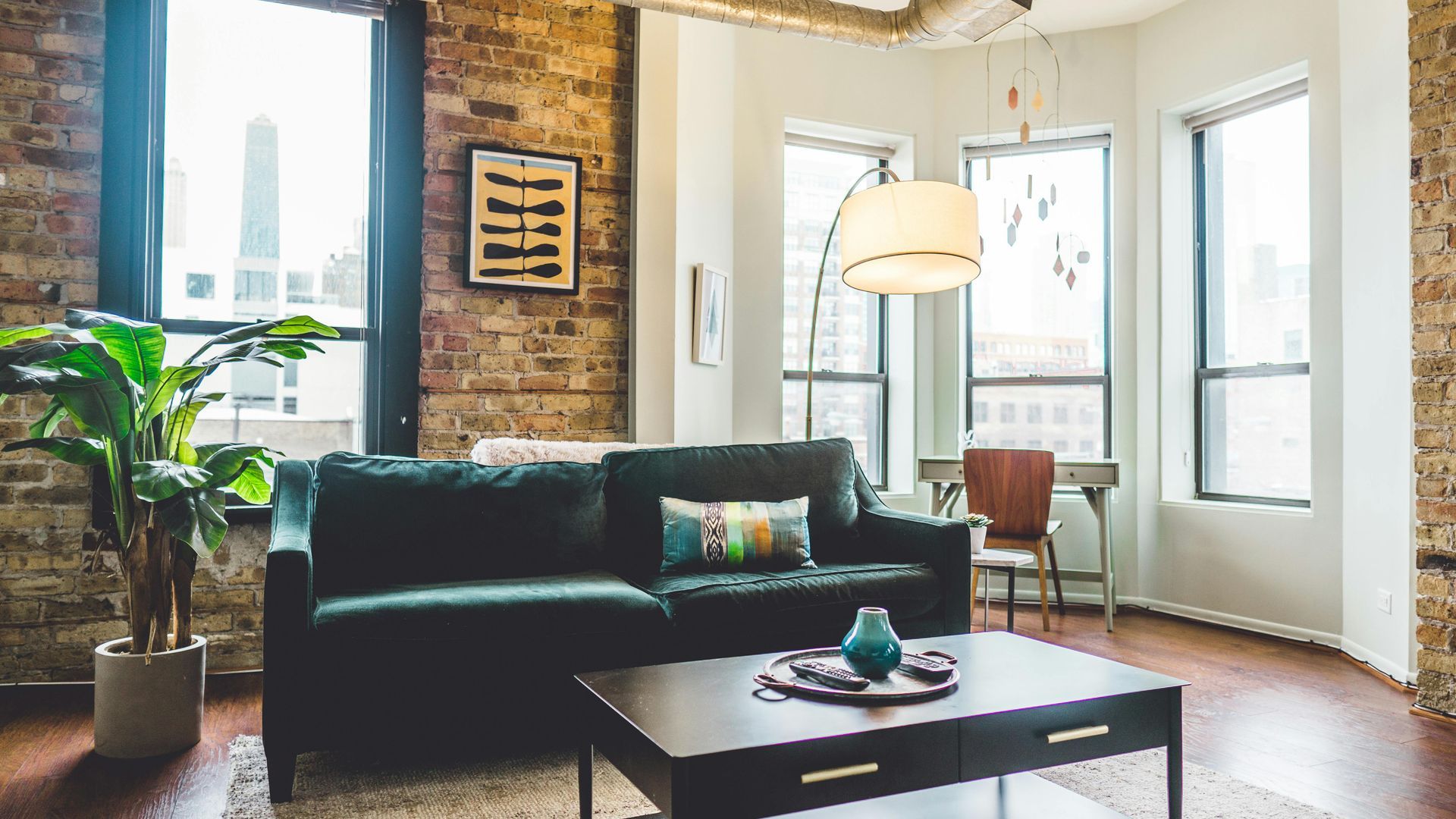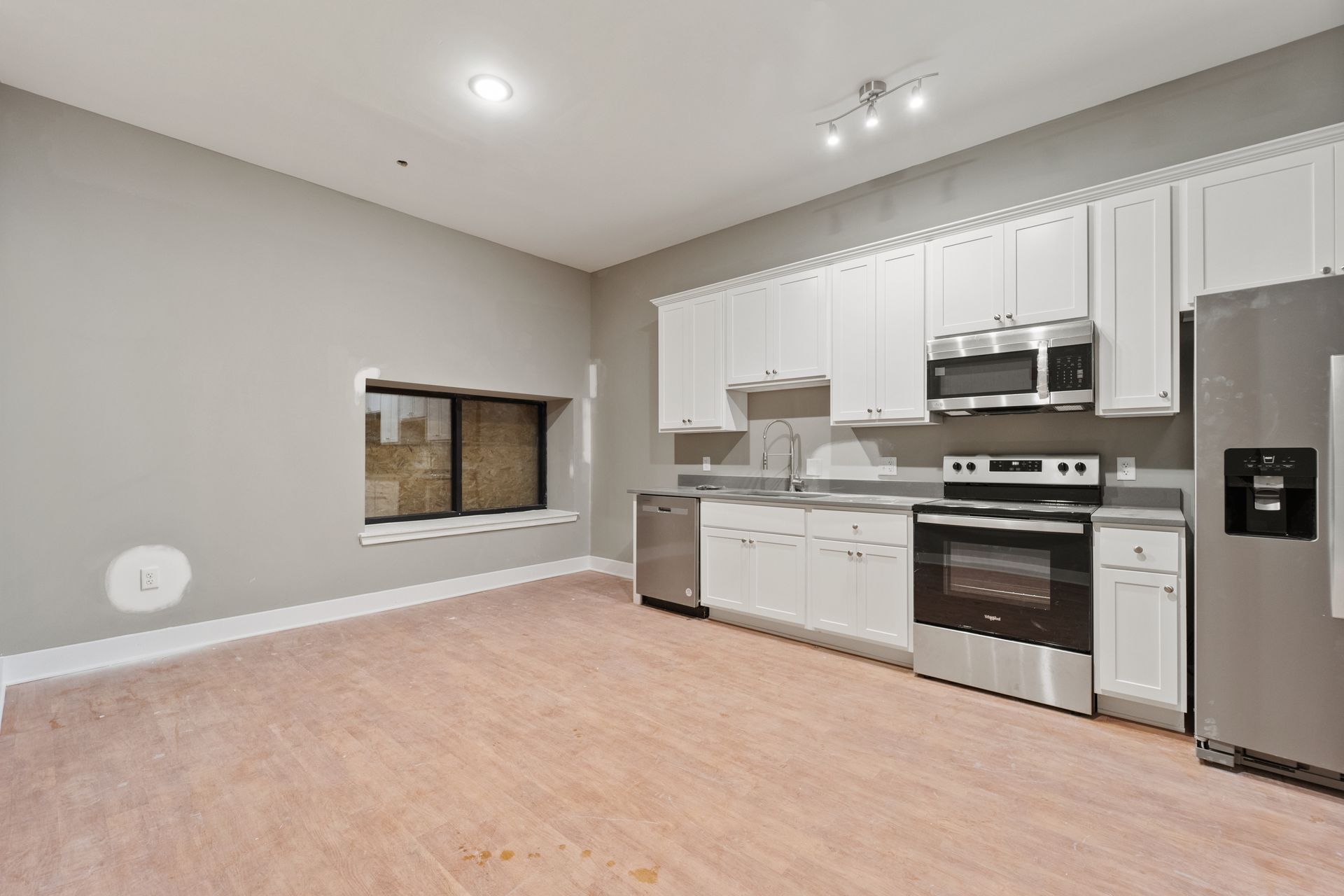Managing Your Electric Bill in Your Apartment: 5 Smart Strategies for Year-Round Savings
If you’re living in an apartment in downtown Baltimore, chances are you’re always looking for ways to make your space more comfortable, and save money where you can. One of the easiest places to start? Your electric bill.
Electricity powers almost everything in your apartment: lighting, heating, cooling, cooking, and more. While you may not be able to control utility rates, you can take a few smart steps to reduce how much energy you use without sacrificing comfort.
At Trademark Properties, we know that managing your monthly expenses is about making small, practical changes. Here are six effective strategies to help you lower your electric bill and use energy more efficiently, whether it’s the middle of a hot Baltimore summer or the dead of winter.
1. Use Your Thermostat Efficiently
Most apartments at Trademark Properties come with easy-to-use digital thermostats. While they aren’t “smart” or programmable, you can still control your energy usage by adjusting them manually based on your schedule.
- In the summer: The hottest part of summer in Baltimore is Mid-June through Mid-August. After that, it starts to cool down a little bit. One of the best ways to help manage your electric bill is keeping your apartment a couple degrees warmer when you’re not going to be home. During the times you’re not home, turn your thermostat up to between 78-80 degrees, and turn it down when you’re home. It won’t take that long to cool down, and more importantly, you’ll be saving yourself a few dollars.
- In the winter: Set your thermostat to 68°F while you’re home and awake. Lower it to 60–65°F when you’re away or sleeping. Your heater won’t have to work as hard, and you’ll still stay comfortable with an extra layer or a cozy blanket.
These small adjustments can have a big impact on your electric bill throughout the year.
2. Cook and Wash Smarter
Everyday tasks like cooking and doing laundry can quietly raise your energy usage, but with a few adjustments, you can do both more efficiently.
- For cooking: In the summer, skip the oven when possible. Instead, use smaller appliances like a microwave, air fryer, or toaster oven to keep the kitchen cooler. In the winter, feel free to bake! That extra heat can help warm your space. Plus, it’s a perfect excuse to work on your baking and cooking skills.
- For laundry: Use cold water for most loads. It’s just as effective and uses less energy, and many of the laundry detergents available now are designed to perform best in cold water. Another tip: Wait until you have a full load before running the washer. It’s nice to be able to wash clothes when you need it thanks to in-unit washers and dryers, but running multiple loads of laundry can easily creep up your electrical usage and power bill. By waiting until you have a full load of laundry, it’ll help minimize the number of loads you’re washing.
3. Block Heat and Insulate with Blinds or Curtains
Windows can let in a surprising amount of heat during the summer and lose warmth during the winter. But one of the easiest ways to reduce that energy exchange is by using the right blinds or curtains.
- In the summer: Close blinds and curtains during the hottest part of the day, especially on windows that get direct sun. Blinds or curtains with heat-absorbing or reflective materials are especially helpful in reducing indoor temperatures.
- In the winter: Open blinds during the day to let in sunlight, which naturally warms your space. Close them at night to trap that heat inside and reduce drafts.
If you’re not sure what kind of window coverings you have, ask the Trademark Properties team for tips. We’re always happy to help.
4. Change Your Air Filters Regularly
A clean HVAC system works more efficiently, and changing your air filters is one of the simplest, most impactful things you can do for your energy bill.
- Check your filters every 30–60 days and replace them as needed. A dirty filter makes your system work harder to push air through, which uses more electricity and can reduce airflow in your apartment.
- Bonus tip: If you have pets or allergies, you may need to change filters more often.
Trademark Properties residents can reach out to the maintenance team if they’re unsure how to check or change their filters. We’re happy to assist!
5. Use Ceiling or Box Fans to Circulate Air
Fans don’t lower the temperature, but they help you feel cooler or warmer by circulating air, and they use far less electricity than running your HVAC constantly.
- In the summer: A fan can make a room feel several degrees cooler by constantly keeping air flowing. Even a room at 80 degrees will feel cooler with a fan circulating air. Plus, they make a number of different size fans with different speeds, all of which run fairly quiet and won’t create a lot of extra noise in your apartment space. Cool and quiet? Total win.
- In the winter: Just like in the summer, running a fan in the winter can help keep air flowing and lower the need for turning on your heat. When central AC units are constantly turning on and off, the air stagnates, and having a fan running not only keeps each room at more consistent temperature, it can help better circulate the heat to all areas of the apartment
Using fans strategically lets you keep your thermostat a bit higher or lower without noticing much of a difference in comfort.
Small Changes, Real Results
Managing your electric bill doesn’t have to mean major lifestyle changes. With a few simple adjustments to your daily routine, and by paying attention to how you heat, cool, and light your apartment, you can see real savings each month.
At Trademark Properties, we’re committed to helping our residents live comfortably with all the necessary things to make it feel like home. If you have questions about your apartment’s energy efficiency or need help with things like air filters, don’t hesitate to reach out to our team. We're here to make your living experience the best it can be.
Want more tips for apartment living in downtown Baltimore? Explore the Trademark Properties blog for city living insights, and helpful resources for renters.








